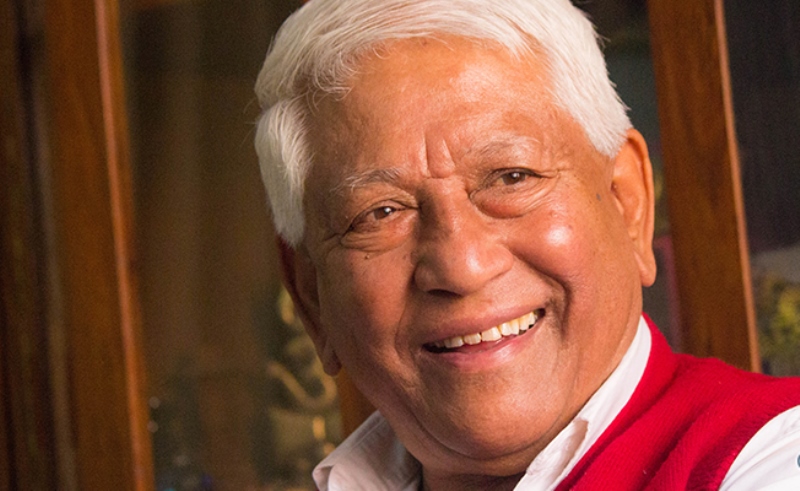Arjunnar Singh KC Urges Caution on BRI, Calls for Grants Over Loans and Parliamentary Transparency

Senior Nepali Congress leader Arjunnar Singh KC has emphasized that Nepal should approach China’s Belt and Road Initiative (BRI) with extreme caution, advocating for it to be considered strictly as a grant rather than a loan. Speaking in a televised interview earlier today, KC highlighted the potential risks associated with BRI-funded projects, citing the experiences of countries such as Italy, Brazil, Sri Lanka, and Pakistan, which have faced economic and political challenges due to unsustainable debt under the initiative. His remarks come at a crucial time, coinciding with Prime Minister KP Sharma Oli's impending visit to India, where regional connectivity and geopolitical alliances are expected to dominate discussions.
KC’s statement reflects the official stance of the Nepali Congress, which has been critical of the opaque nature of BRI agreements and their potential long-term implications for Nepal's sovereignty and economic stability. Drawing a parallel with the Millennium Challenge Corporation (MCC) agreement, he called for a similar level of public and parliamentary scrutiny before any commitments are made under the BRI framework. "The government must bring the details of the BRI to the parliament," KC asserted, underlining the importance of transparency and public debate on an issue that not only has economic ramifications but also pertains to national security. "Nepal cannot afford to repeat the mistakes of other nations that have struggled with debt diplomacy," he warned.
The BRI, a flagship project of Chinese President Xi Jinping, aims to enhance global trade and connectivity through massive infrastructure investments. While it has been embraced by many countries for its potential to spur economic growth, it has also been criticized for saddling nations with unmanageable debt and creating geopolitical dependencies. In Nepal, the initiative has sparked a heated debate, with political leaders, economists, and civil society expressing varying degrees of support and concern.
KC’s remarks are significant as they signal a growing unease within Nepal’s political establishment about the terms and conditions of BRI participation. His call for a transparent and consultative process echoes the controversy surrounding the MCC, a $500 million U.S. grant for infrastructure development, which faced prolonged delays due to political disagreements and public skepticism over its implications for Nepal’s sovereignty. The MCC debate had set a precedent for involving parliament and the public in discussions on major international agreements, and KC’s insistence on a similar approach for the BRI reflects a commitment to accountability.
The timing of KC’s statement is particularly notable, as it comes ahead of Prime Minister Oli’s visit to India, a key regional player with its own reservations about the BRI. India has consistently voiced concerns over China’s growing influence in South Asia through the initiative, viewing it as a challenge to its strategic interests in the region. Nepal, caught between the two Asian giants, has sought to balance its relationships with both neighbors while pursuing its development objectives.
KC also touched on the broader implications of BRI participation, suggesting that the government carefully assess the potential impact on Nepal’s security and foreign policy. "This is not just an economic matter; it has far-reaching consequences for our national security and regional positioning," he said, urging the government to prioritize national interests over short-term gains.
The senior leader’s remarks are likely to resonate with sections of the Nepali public and political spectrum that remain wary of foreign interventions and indebtedness. They also add pressure on the government to ensure a more inclusive and transparent decision-making process regarding BRI projects. As Nepal navigates its geopolitical challenges, the coming weeks will be critical in shaping the country’s approach to the BRI and its broader foreign policy trajectory.

![From Kathmandu to the World: How Excel Students Are Winning Big [Admission Open]](https://nepalaaja.com/img/70194/medium/excel-college-info-eng-nep-2342.jpg)
